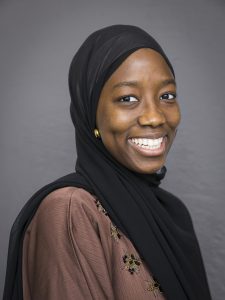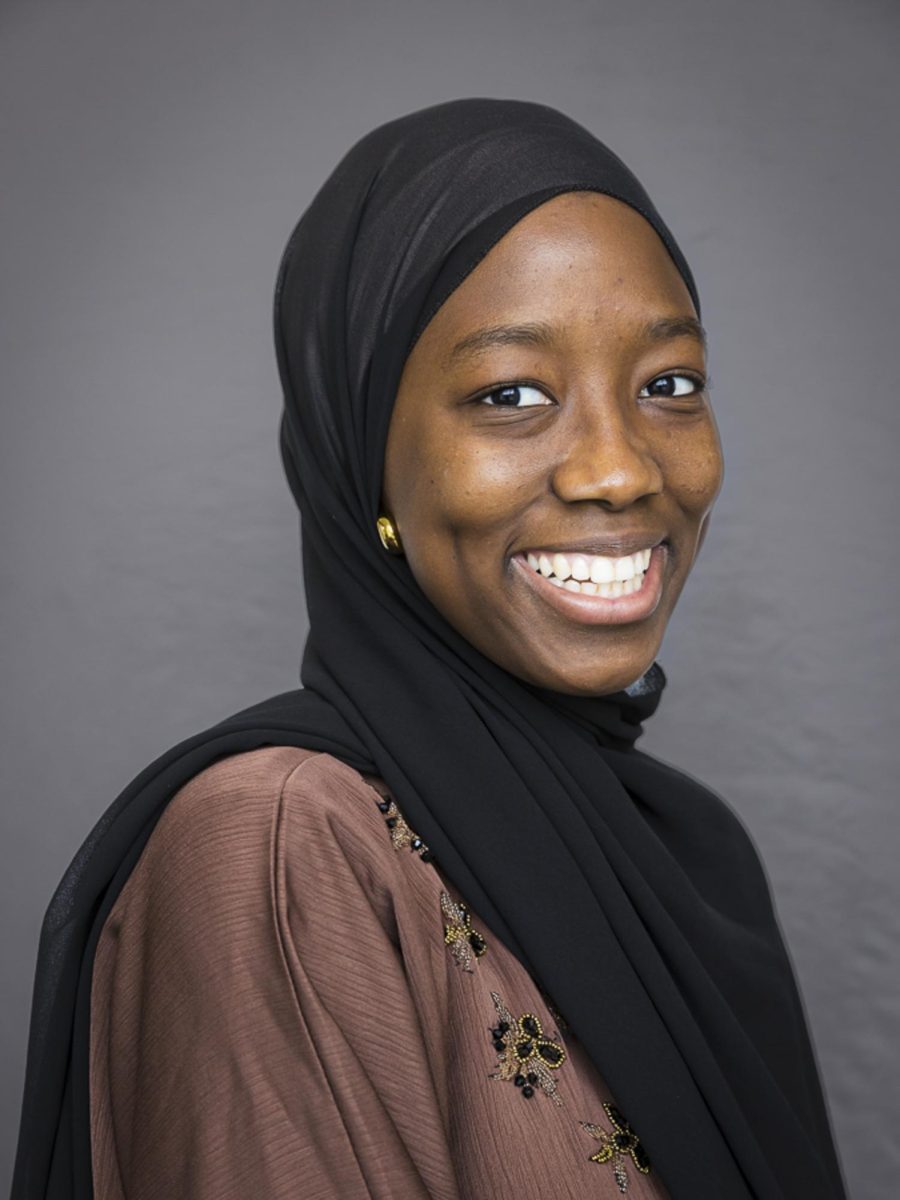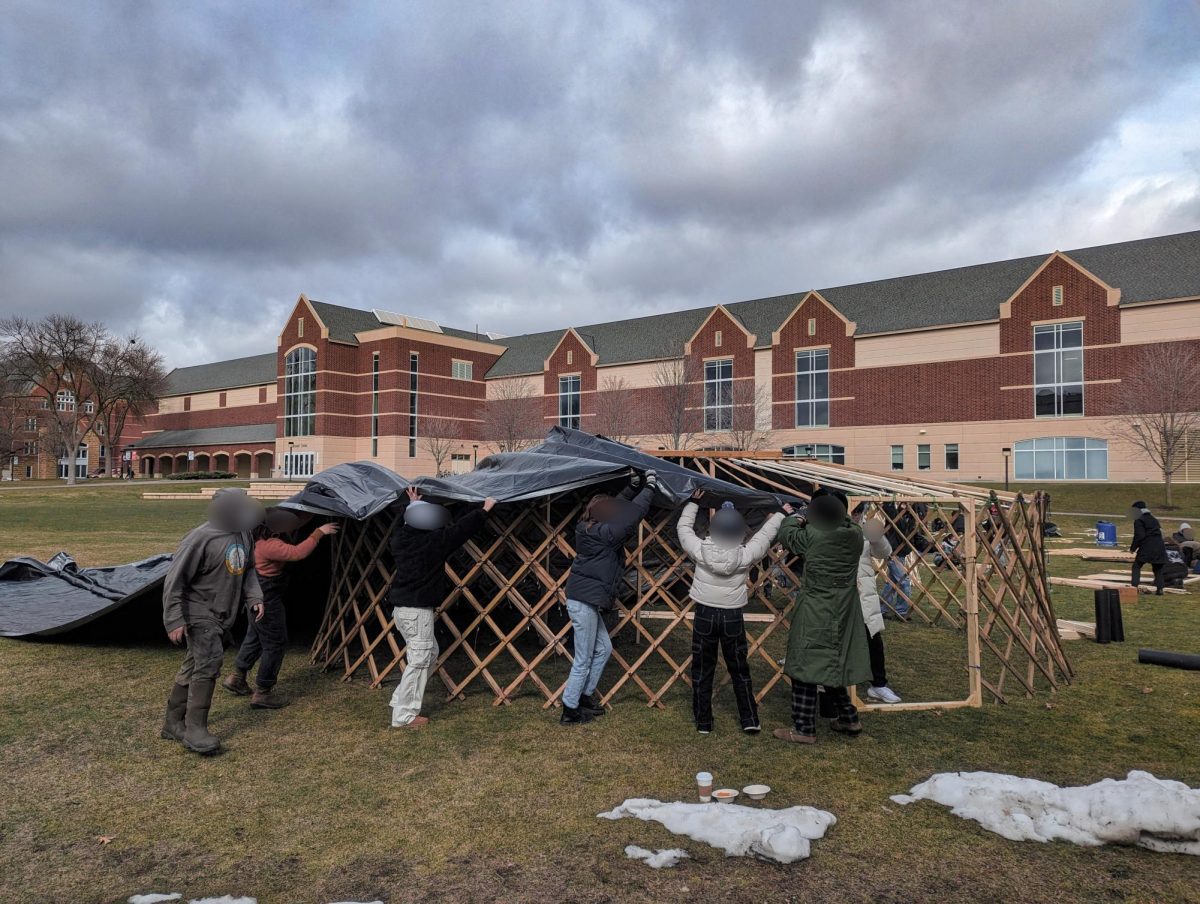Over 80 Macalester community members attended a panel on the American Studies Association (ASA) boycott of Israeli academic institutions last Tuesday. The crowd overflowed Carnegie 06A, which seats 60.
“It’s evident that people will turn up when there’s debate and dialogue,” panelist Noah Westreich ’15 said.
Members of J Street U and Mac Students United for Palestinian Equal Rights (SUPER) organized the panel to discuss the ASA boycott of Israeli academic institutions as part of a broader Palestinian civil society movement to boycott, divest and sanction Israeli institutions and businesses. This Boycott, Divestment and Sanction (BDS) movement aims to pressure the Israeli government and society to end occupation of the Palestinian-claimed West Bank and Gaza Strip.
On Dec. 4, the ASA became the largest academic association to join the boycott, following the Association for Asian American Studies (AAAS) and Native American and Indigenous Studies Association (NAIS). The voting body included 1,252 of the 5,000 members in the organization, the largest in association history, and passed with 66.05 percent in support. The ASA will continue to work with individual members of the Israeli academic community as the boycott is happening on an institutional level.
Panel facilitator Fil Kostanecki ’17 explained that the panel was organized to encourage dialogue and reach across this contentious and dividing issue. He encouraged those in attendance to keep an open mind to new, challenging points of view.
“Let us ask clarifying and not pointed questions,” he said.
The panel included American Studies major Leewana Thomas ’14, co-chairs of J Street U Westreich and Ronit Zemel ’15, MacSUPER co-chair and Palestinian student Muath Ibaid ’17 and MacSUPER co-chair Hannah Evans ’15.
The panel discussed the ASA boycott, the wider BDS movement and the Israeli-Palestinian conflict. The panelists discussed framed this discussion within the wider campus dialogue that has included several opinion pieces in The Mac Weekly and a public statement written by President Brian Rosenberg in opposition of the boycott.
Panel discussion
After introducing themselves, the panelists each took a turn to state their stances on the boycott and explain their reasoning.
Thomas spoke in support of the boycott of Israeli academic institutions as both an American Studies major and social justice advocate. She explained that the ASA boycott is an action in solidarity with the Palestinian civil society and the wider BDS movement. Thomas also said that the Israeli government is engaging in what many members of the ASA describe as settler colonialism through the occupation of the Gaza Strip. Additionally, she said the boycott supports Palestinian students who do not find equal academic opportunities.
“There are a myriad of violations of academic freedom,” she said. “There are Palestinians [who feel] bullied when trying to pursue their own truth.”
She also clarified that the ASA would continue to work with individual Israeli students and academics.
“This resolution is saying, so long as institutions continue systematic discrimination against racialized social minorities, we will not support it, but we will support individuals,” she said.
She added that the boycott has been successful in one of its major goals, to foster dialogue.
Following Thomas’ portion, Westreich spoke. He spent a semester abroad at the University of Haifa and studied at Tel Aviv University for credit last summer. He spoke in opposition to the boycott as both a “card-carrying member” of Israeli academic institutions and a supporter of dialogue between Israel and Palestine.
“The universities of Israel are filled with students looking for their place in the world, and learning disciplines,” he said. “We all need to go to university to have a viable career.”
He said the boycott only intensified the debate over Israel and Palestine and took away opportunities to reach across barriers. He added that he does not think this boycott would join those associated with the U.S. Civil Rights movement and ending Apartheid.
“Dissent shuts [this] discourse down,” he said. “This particular boycott will not be on that list of boycotts, it will be a on a list of failed boycotts.”
He closed with the observation that the American Jewish community has changed substantially since the Israeli occupation of Palestine in 1969. Community members prefer debate and dialogue to “red line drawing and conditionals.” That observation, he said, gave him hope for the future.
Ibaid spoke next in support of the boycott as an action in solidarity with Palestine, as the ASA does not traditionally work with Israeli academic institutions.
“Every person is going to care about others’ equal rights,” he said. “For me, it is mostly symbolic. The resolution clearly does not cut off any connections directly.”
He said that the division between the Gaza Strip and West Bank limits the academic freedom of Palestinian students because they cannot travel to universities between the two areas. Additionally, he cited his own experience seeing air strikes on Palestinian schools.
He said the boycott is a movement away from the violence-based thinking of the past toward peaceful resistance. In contrast to Westreich, he said this boycott was building on the past success of boycotts like that of Apartheid.
Following Ibaid, Zemel said that she agreed with the ASA’s intent, but not their methodology.
“I want to [find peace] in what I see as a productive manner,” she said. “I want to see [peace] in my lifetime or grandchildren’s lifetime.”
An advocate for a two-state solution through dialogue, she took issue with the ASA boycott because she thought it would not help bring together the leadership of Israel and Palestine. She also said that she did not understand why the ASA chose to single out the human rights abuses in Israel when they exist around the world in areas like North Korea, Bahrain or Sudan. Additionally, she thought the ASA boycott took too negative a spin to the situation.
“It could have been given a positive spin,” she said. “Like: ‘End barriers prohibiting connection between Gaza Strip and the West Bank.’”
She added that while the BDS creates economic pressure, she felt the academic boycott did not have similar results.
“The academic [boycott] is cutting off voices, stopping the flow of ideas,” she said.
Following Zemel, Evans, who was born in Palestine, spoke about the lengthy process by which she decided to oppose the boycott. She struggled with the BDS movement as it called for economic, cultural and academic actions in opposition of Israel.
“A lot of Israeli academics are trying to end occupation as well,” she said.
She framed her remarks within the culture of academics in Israel, explaining that every Israeli university receives some funding from the government. Administrations of Israeli academic institutions must adhere to Israeli laws in order to continue to receive funding.
For example, she said the Israeli government has stated that it will withhold financial support from NGOs or institutions that call Israeli Independence Day, Yom al-Nabka Day. Al-Nabka Day or “Day of the Catastrophe” is the name given by many in the Palestinian community to May 15 to commemorate the displacement of many Palestinians during the 1948 Palestine War.
In closing, Evans acknowledged that the BDS movement could use a better image.
“BDS in general has a huge PR problem,” she said. “[People are] seeing it as calling out and endless boycotting and hating of Israel.”
She said BDS could benefit from a positive spin like that mentioned by Zemel. She extended this critique to the ASA boycott.
“I wish there was another counterpart to go along with the boycott so people wouldn’t write it off as those crazy American Studies people,” she said.
Attendees praise diversity of panel
The panel received overall position reviews from those in attendance for the level of diversity of views held.
Sarah Dillard ’15 spoke positively about the voices represented and said the panel helped her develop her decision to support the boycott. Of Palestinian descent, she said the panel helped her find a way to enter the conversation on the Israeli-Palestinian conflict.
She added that she was happy to see that the panel was accessible to those without a direct connection to the event.
“People with no knowledge want to know what the boycott is,” she said.
Sophia Hansen-Day ’15 said she was very happy with the level of diversity represented on the panel, though she felt Palestinian voices should be held at the forefront.
“More than anything Palestinian voices needed to be centered,” she said. “I think I was frustrated by the structure of the panel and how [Ibaid’s] experience was given equal weight to folks who spent less time in Palestine in more privileged settings.”
She also added that the panel fostered excitement around this issue that she had seen on campus before, which she credited to the boycott.
“The ASA resolution has been successful because of the discussions that have come out of it,” she said.
Each panelist said they received praise from those in attendance for the diversity of views expressed.
Evans said that not all possible views were represented because either such a person does not attend Macalester or does not feel comfortable expressing that view publicly. For example, she mentioned those individuals that deny that there is even a problem in the Israeli government.
“Everybody [on the panel] recognizes that there is a problem,” she said. “A voice we didn’t have was anyone that denies there’s any problem for Israel.”
Westreich added that the panel also lacked extreme perspectives in total opposition of the legitimacy of Israel or Palestine. Evans said most students align with MacSUPER and J Street U and fall somewhere in the middle.
MacSUPER and J Street U held an informal joint meeting on Monday to debrief following the panel. According to Ibaid, the event was well-attended with about 20 people participating.
No official stance
During the question and answer period, Farah Haddad ’17 asked whether the campus had already taken a stance as a result of President Rosenberg’s statement.
Thomas answered that Macalester had not taken a stance and that Macalester is not an official member of the American Studies Association.
“I appreciate that Brian Rosenberg – that’s one of the few times you’ll hear me say this – I appreciate that Brian Rosenberg stated in his personal statement that he was not representing the views of the whole academic community,” Thomas said. “But to dismiss [the boycott] is naïve.”
Evans added that though the statement is listed under his personal writings, it is important to keep in mind that Rosenberg’s 11-year tenure on campus affects the weight of his statements.
In an interview following the panel, Ibaid said he wished the president had not made a statement.
“I don’t think he should have released a statement, knowing it is a controversial statement that some students will disagree with,” he said.
He acknowledged that the president has the right to express his personal opinion on anything.
Rosenberg, who was unable to attend the panel because of a simultaneous Board of Trustees meeting, said that he hesitated to publish the statement, because of his position as a representative of the college. The statement was a response to several alumni who asked if he would make an official statement like hundreds of other college and university presidents and provosts around the country.
“At first I was inclined not to say anything…,” he said. “[I]n general I don’t try to be coy about what my views are…I have to be cautious because my views can be conflated with institutions.”
During the panel, Thomas said that she did not approve of Brian Rosenberg’s characterization of the process by which the ASA passed the boycott resolution.
In his letter Rosenberg wrote that he thought the process was “ill-considered, poorly explained and incompatible with the central mission of Macalester or any college or university.”
“I find [that] really offensive to a process that is as democratic as you can get,” she said.
She added praise for the ASA for involving the entire membership in a dialogue and electronic vote to approve an executive board motion to engage in the boycott.
Consortium for Faculty Diversity Predoctoral Fellow Juliana Hu Pegues from the American Studies department participated in the ASA vote. She said the executive board initially decided to join the boycott, before putting the decision to vote. The process lasted several months and included an association-wide meeting in which all members were allowed to participate before the electronic vote. She also took issue with the president’s statement.
“I really thought it was unfair, because he didn’t just disagree, he characterized it [so poorly],” she said. “It was a process that took several years within ASA and was the most democratic I have ever seen within an academic association.”
President Rosenberg said he has received positive feedback from those that agree, but no one who disagrees has directly spoken to him. He said he did read an opinion piece by Hansen-Day in The Mac Weekly.
In the piece Hansen-Day characterized Rosenberg’s statement as “shameful” and encouraged people to “share [their] disappointment in his decision to oppose the boycott [and] patronizingly describing the resolutions.”
Rosenberg said that he expected this tone from those that disagreed with him.
“When in a visible position like mine you get used to that,” he said. “In an ideal world you could expect disagreement, without pointing to a failure of ethics or character.”
Rosenberg added that he does not think the college should take a stance on the boycott because there is no actual reason for Macalester, a non-member of the ASA, to take a boycott.
“There is no individual policy at stake,” he said. “If someone were asking us to boycott a particular product, we would need to look it over … [but] I don’t think there is a need.”
He added that he would not boycott the ASA in response.
“I would not boycott the ASA for the exact same reason,” he said. “I don’t agree with academic boycotts, but they are perfectly welcome to be here.”
Hansen-Day said Macalester should take a public stance on the boycott to maintain its institutional values.
“I would like to see a more democratically-reached statement to represent Macalester,” she said. “I think Macalester heralds itself as a place where students care about international issues … I think we do have a responsibility to take a public stance.”
Hu Pegues indicated that those in favor should continue supporting the boycott, but did not see the need for an institutional stand. It is more important, she said, for students and faculty to act in solidarity with Palestine by continuing to support the boycott on an individual level.
“[I]t’s not about Mac as a whole coming to one point, but about making a statement,” she said.
Hansen-Day organized an informal meeting of students aiming to push Macalester towards official support for the boycott onThursday, after press deadline.














Joseph Anderson • Sep 11, 2019 at 9:06 am
Thanks for your tips on this blog. 1 thing I would like to say is always that purchasing consumer electronics items in the Internet is not something new. In fact, in the past ten years alone, the marketplace for online electronic products has grown drastically. Today, you could find practically any specific electronic gadget and gizmo on the Internet, ranging from cameras plus camcorders to computer elements and gaming consoles.
Alison Dickens • Sep 10, 2019 at 3:52 am
Hello there! This post couldn’t be written any better! Reading this post reminds me of my previous room mate! He always kept chatting about this. I will forward this page to him. Fairly certain he will have a good read. Thanks for sharing!
Kimberly Mills • Sep 7, 2019 at 6:19 am
On each weekend, we all mates jointly used to watch show, as fun is also essential in life.